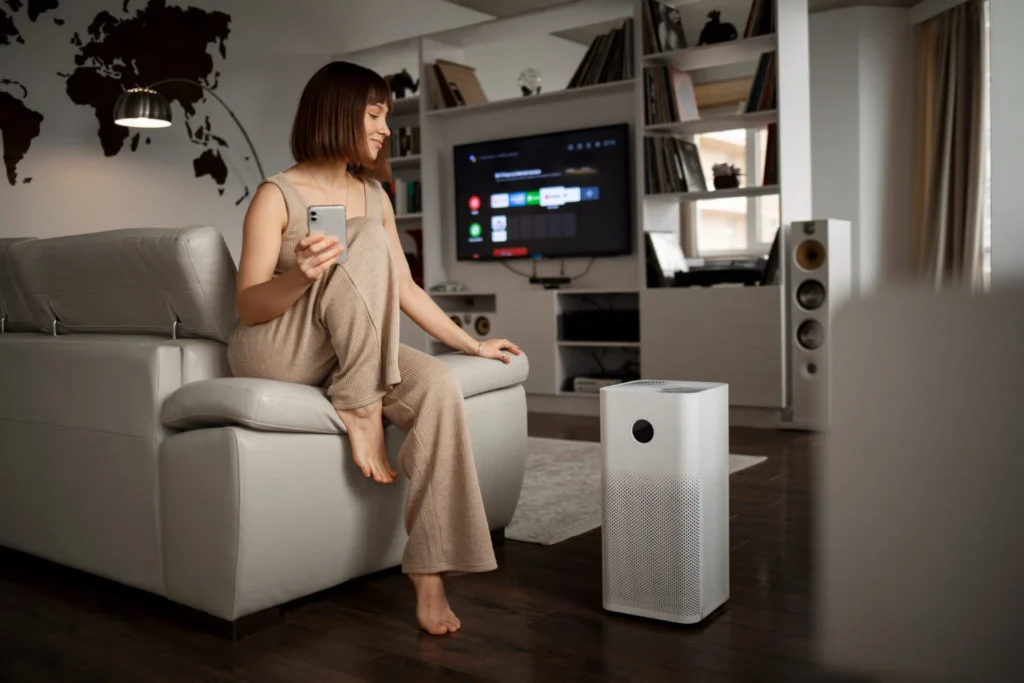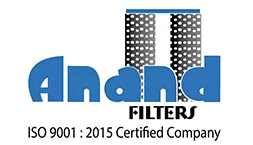
HEPA Filters: High-Efficiency Filtration for Clean Air
More than ever, it is very essential to preserve clean and safe air in our rapidly industrializing and urbanizing world. Air filtration is vital to increasing industrial productivity, protecting delicate environments like hospitals and laboratories, and maintaining human health.
HEPA filters, a type of air filter that has been around since the early 1950s, are a vital component in the productivity of any air filtering system that guarantees the removal of harmful contaminants.
Theoretically, these types of air filters can remove 99.97 percent of any airborne particles larger than 0.3 microns, including dust, pollen, mold, bacteria, etc.
Essentially, these filters are certified to catch a greater percentage of ultra-fine particles than all of the other filters on the market, providing improved indoor air quality and health generally, especially for people who have chronic allergies or respiratory conditions.
The number of HEPA filter manufacturers in India in the commercial, automotive, healthcare, and electronics sectors is increasing at a rapid pace.
What is a HEPA Filter and How Does It Work?
A filter’s performance is certified by the HEPA (High Efficiency Particulate Air) air filter efficiency standard. According to an organization called the IEST, a HEPA filter can catch 99.97% of particles as small as 0.3 microns.
A HEPA filter differs from the ordinary air filter you would normally install in your house. Pleated mechanical air filters with a significant thickness to catch particles are known as HEPA filters.
Manufacturers typically use PTFE or glass fiber, formed as a mat of randomly distributed strands, to make HEPA filters. The HEPA filter traps particles in one of three ways, depending on their size.
- Impact: A filter fiber either traps bigger particles directly or catches them in its net-like structure.
- Smaller particles: They attempt to follow the air and pass through the filter fibers during interception, becoming trapped or hooked on the filter.
- Diffusion: When suspended in airflow, very smooth particles may travel at random. Because of their irregular movement, they strike the filter fibers, which eliminate them from the airflow.
Applications of HEPA Filters in Different Industries
While HEPA filters were initially a military invention, their substance-clearing abilities have made them necessary across a variety of industries. Now, let’s explore the sectors that are gaining the greatest advantages from it. Important industries include:
- Pharmaceutical Industry: Hazardous materials are always present in this industry. As a result, HEPA filters play an essential role in safeguarding employees against any harmful substances. Also, since this industry works with only top-quality industrial filters, it can ensure that there will absolutely be no contamination during manufacturing.
- Healthcare & Hospitals: Hospitals use HEPA filters to help reduce the risk of airborne infections in places like operating rooms, labs, and isolation rooms. These HEPA filters can prevent airborne diseases such as SARS-CoV-2 or MRSA from reaching patients or healthcare staff.
- Manufacturing Electronic Components: HEPA filters can assist with manufacturing electronic components that have become increasingly in demand in recent years. The filters can help in creating an immaculate and sterile atmosphere for producing electronic chips and other elements.
- Automobile Manufacturing: HEPA filters are essential during the automobile manufacturing process for the sensitive painting and coating of parts. On top of this, manufacturing suppliers and research and development of new automobile types and parts can also use industrial filters.
- Aerospace and Semiconductor Manufacturing: The semiconductor industry requires the purest air possible for production to prevent contamination of sensitive and small environments with microchips. Similarly, in aeronautical engineering, even the smallest particulates can have a significant influence on high-precision sensor manufacturing.
Why Choose HEPA Filters for Air Purification?
HEPA filters offer benefits that make them vital for commercial or residential use in any place where people care about their health.
- Improved Air Quality: HEPA filters can remove 99.97% of airborne contaminants, including mold spores, pollen, and some harmful bacteria and pathogens. These filters are great for use in hospitals or research labs where high air quality is a priority.
- Allergy and Asthma Relief: HEPA filters can significantly improve the quality of life for allergy or asthma-suffering users by removing airborne aeroallergen sources from the air. By removing airborne allergens like pollen and dander, HEPA filters eliminate irritants to air quality and the chance of developing an asthma attack or allergic flare-up.
- Improved Energy Efficiency: When properly maintained, HEPA filters can also help improve the energy efficiency in your HVAC system. HEPA filters minimize contaminants from forming on HVAC components, which can hinder energy efficiency and reduce energy use.
Top HEPA Filter Manufacturers in India
India has several reputable HEPA filters manufacturers known for their quality and compliance with maintaining international standards.
Anand Filters: Anand Filters is one of India’s leading producers of HEPA filters. The company provides filtration products for residential, commercial, and industrial uses. It is well known for ISO-certified products and custom HEPA filters that eliminate dust, allergens, and other air pollutants.
Enviro Tech Industrial Products: Enviro Tech Industrial Products creates some of the highest quality HEPA filters and produces state-of-the-art air filtration solutions for industrial, pharmaceutical, and healthcare uses. The company provides high-efficiency air filtration that complies with international standards.
United Filter Industries Pvt. Ltd.: A well-established hepa filter manufacturer in India, the firm focuses on air filtration systems for homes, offices, and industrial applications.
Factors to Consider When Selecting a HEPA Filter
Clean room operations and air purifiers, among other systems, utilize HEPA filters as critical components. They filter air to remove and control germs, toxic gases, and particles. The following considerations could be helpful when selecting a HEPA filter:
- Estimate Filtration Effectiveness: Technicians use dust particle counters to estimate air filter efficiency, which serves as one of the performance criteria. When choosing a HEPA filter, it’s important to account for the kind of pollutants present, their concentration levels, and the particle size that needs to be captured.
- Choose the Correct Filter Material: HEPA filters consist of an ultrafine glass fiber, PP fiber, or other materials. The specific uses, operational, or environmental conditions, should drive the selection of materials.
- Review the Filter Area: The Filter area is typically defined based on the volume of air that the filter can process over time. The size of the filter surface plays a crucial role in determining how effectively it performs. When selecting a filter, consider the amount of air to be treated, the required flow rate, and the desired level of filtration efficiency.
- Consider Noise and Pressure Drop: While a HEPA filter is in operation, some noise and pressure drop are expected. Ensure that you verify that both the pressure drop and the noise level are suitable for your application.
Conclusion
HEPA filters have a vital role in maintaining the air quality and cleanliness required in many environments. With their range of possible contamination removal, HEPA filters help to keep areas, like cleanrooms and other commercial spaces, safe, healthy, and particle-free.
In India, a group of Hepa filter manufacturers produces affordable products that comply with international standards. India is emerging as a key air filtration market, with prominent manufacturers such as Anand Filters.

